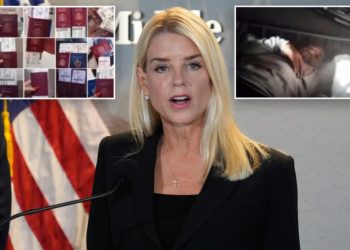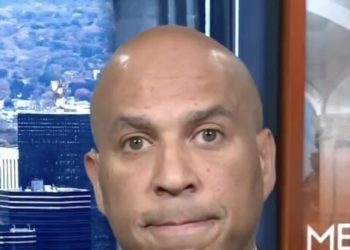Another school shooting. This time in Minnesota. Families torn apart in seconds. A normal day turned into horror.
In the aftermath, many recalled another atrocity — the shooting at the Covenant School in Nashville two years ago. That one struck close to home for me. While my wife and I lived in Nashville, Covenant was our church for many years. I watched video of SWAT officers rushing past the very room where I once sat in Sunday school. The grief became more personal when I flew back to Tennessee from Montana to play the piano at the funeral of one of the victims.
When our own curtain is pulled back, and the way forward is shadowed with suffering, we remember: The road to glory may well run through a street called Straight.
These moments make the world feel unrecognizable. And when the dust settles, the mockery often begins. Politicians dismiss prayer. Late-night hosts sneer at faith. Social media shrugs off God with cheap jokes. Unbearable suffering, then mocked with derision.
Watching this unfold, I was reminded of the story in Acts 9 about a street called Straight. Saul had just experienced a dramatic encounter with the risen Christ on the road to Damascus — an encounter that left him blind for three days. During that time, the Lord appeared in a vision to a disciple named Ananias. He told him that Saul was staying at the home of a man in Damascus, on a street called Straight, and that Ananias was to go and pray for him.
Ananias recoiled — Saul’s reputation as a persecutor was well-known — but the Lord gave him a startling explanation: “I will show him how much he must suffer for my name” (Acts 9:16).
Not long after, Saul became known as Paul — the same apostle whose letters fill much of the New Testament. And from the very beginning of his ministry, suffering was not hidden from him but placed squarely before him. In Greek, the phrase means literally, the full measure. Not a glimpse. Not a teaser. The whole road of suffering laid out before him. And Paul walked it anyway.
His apostleship was never presented with illusions of ease. Five times he endured 39 lashes, until his back was scarred beyond recognition. Three times he was beaten with rods. In Lystra, a mob stoned him and left him for dead. Paul did not write as a theorist or philosopher; every sentence came from a man whose body testified as loudly as his words.
So when Paul wrote words of encouragement like, “We are hard pressed on every side, but not crushed; perplexed, but not in despair; persecuted, but not abandoned; struck down, but not destroyed” (2 Corinthians 4:8-9), we can bank on it — because those words were not written in safety but with scars still healing.
These weren’t armchair reflections but battlefield confessions. And scripture pulls the lens back even further with Job, who faced his own crucible of loss. His wife derisively urged, “Curse God and die.” But Job replied, “Though He slay me, yet will I trust Him.”
Why? Because Job knew the One who allowed suffering was also the only One who could redeem it.
This truth was driven home to me after one particularly brutal surgery. My wife, Gracie, was clock-watching in her hospital room. In this recovery (she’s had 98 surgeries), the pain spiked to staggering levels. She had to wait before the next dose of medication, and the minute hand on the wall became her tormentor. Her jaw clenched, her body trembled, and she looked at me with eyes filled with anxiety and agony.
Leaning close, my own eyes moist, I thought about the apostle’s testimony and said softly, “Gracie, it is often said that if you took off the apostle Paul’s tunic, you would see 195 scars from the beatings he endured. And he had no anesthesia.”
Through clenched teeth she shot back, “I’m not the apostle Paul.”
I placed my other hand on hers. “No, you’re not. But the same Spirit who sustained him will sustain you. He will never abandon you.”
The pain didn’t vanish. But together we endured — not by strength we could muster, but by the same power that carried Paul through lashings, Peter to his cross, and Jesus all the way to calvary.
RELATED: When God’s light hits hard, don’t flinch — stand firm
God does not answer every question. He did not explain Job’s suffering, and He rarely explains ours. What possible explanation could we process about what happened in Minnesota?
But He did reveal to some. He showed Paul the full measure of what he would suffer. He told Peter the manner of his death. He warned the disciples plainly about persecution. And still they went.
They left scars, letters, hymns, and sermons that still speak. And because they staked their lives on what they had seen, we can bank on their testimony when our own way grows murky.
The path is often hard to see. Scripture says God’s word is a lamp to our feet, not a searchlight illuminating miles ahead. In the dark, we do not get the full blueprint. But we do get enough light for the next step.
Yet, sometimes God pulls back the curtain — just a little — and the road ahead looks unbearably bleak. For the families in Minnesota, for Job in his ash heap, for Paul staring down lashes and stones, the cost was laid bare. And in those moments, the scars of Paul, the conviction of Job, and — above all — Christ setting His face like flint toward calvary, echo down the centuries to steady us.
Because when our own curtain is pulled back, and the way forward is shadowed with suffering, we remember: The road to glory may well run straight through a street called Straight.
The post School shootings and the street called Straight appeared first on TheBlaze.




